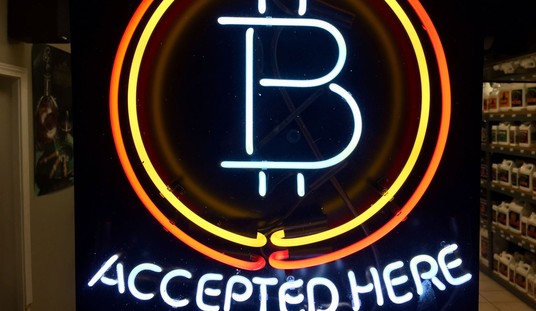Despite a multi-million dollar media blitz, Israelis are not buying the US-financed Geneva Initiative's attempt to convince us that we have a Palestinian partner. A week after the pro-Palestinian group launched its massive online promotion urging people to join its Facebook page, a mere 634 people had answered the call.
The US-funded agitprop involved ads in which senior Fatah propagandists were featured telling Israelis we can trust them this time around. The reason for its failure was made clear by a public opinion poll taken Tuesday night for Channel 10. When asked if they believed that Fatah leader Mahmoud Abbas is serious about making peace with Israel, two-thirds of Israelis said no. Only 23 percent said he was serious and 17 percent said they didn't know.
Moreover, most Israelis have had it with the peace paradigm based on Israeli concessions of land and national rights in exchange for Palestinian terror and political warfare. When asked whether the government should extend the prohibition on Jewish construction in Judea and Samaria beyond its Sept 26 terminus, 63 percent said no, it should not. A mere 21 percent of the public believes the government should respond positively to the US demand that Jews continue to be denied our property right in Judea and Samaria.
In his analysis of the results, Channel 10's senior political commentator Raviv Drucker said that if Prime Minister Binyamin Netanyahu decides to make a deal with the Palestinians, he will have a hard time convincing the public to support him.
Drucker also argued that the results may have been influenced by the Palestinian terror attack on Tuesday night in which four civilians were brutally murdered on their way home from Jerusalem. That is, Drucker implied that the public is driven by its emotions. But what the results actually show is that the public is driven by reason.
Recommended
When Palestinian terrorists gun down innocent people on the highway simply because they are Jews, the public's reasoned response is to say that the Palestinians do not want peace. The public's wholly rational reaction to this act of anti-Jewish butchery is to insist that Jews should not be denied our basic civil and human rights in a dangerous bid to appease murderers.
The poll's final question regarded Netanyahu and his intentions at the new round of land for peace negotiations in Washington. Slightly more than half of the public believes that Netanyahu is serious in his pursuit of a deal with the Palestinians and a mere 34 percent believe that he is not serious.
This last response is interesting for two reasons. First it is a strong indication that the public trusts Netanyahu's word. Since taking office a year and a half ago, Netanyahu has said repeatedly that he supports making a deal with Fatah. And a majority of the public believes him.
The second conclusion suggested by the result is more discouraging. With the public convinced that the Palestinians are not to be trusted and that Israel should stop making concessions, the majority of the public believes that Netanyahu is moving in the opposite direction. Netanyahu's statements in Washington give us ample reason for concern.
ON WEDNESDAY evening, ahead of a dinner at the White House with US President Barack Obama, Abbas, Egyptian President Hosni Mubarak and Jordan's King Abdullah, Netanyahu made a startling statement.
He said, "I have been making the case for Israel all my life. But I did not come here to win an argument. I came here to forge a peace. I did not come here to play a blame game where even the winners lose. I came here to achieve a peace that will bring benefits to all."
This statement is worth considering carefully. Does Netanyahu truly believe that by "making the case for Israel" he and others who speak out in defense of Israel have merely been argumentative?
Does he think that defending Israel's rights diminishes the prospects for peace and so those that defend Israel are actually harming it?
Does he believe that in calling the Palestinians out for their brutality, barbarism and hatred of Jews and Israel he and his fellow advocates for Israel have merely been playing a blame game?
Does he think that a peace forged on the basis of ignoring Israel's case will be a viable peace?
If Netanyahu does believe all of these things - and his statement on Wednesday evening indicates he does, then the public should be very worried. Indeed, if this is what the premier believes, then it is just a matter of time before he begins echoing his predecessor Ariel Sharon and tells us that we are too dimwitted to understand him because the world looks different from where he is sitting than from our lowly perches on the ground, in Israel.
AND THIS brings us back to Tuesday evening's highway massacre. Predictably, the Obama administration led the way in framing the terrorist violence as a bid by Hamas to derail the newest round of negotiations. For example, after meeting with Netanyahu Wednesday Obama said, "The tragedy that we saw yesterday where people were gunned down on the street by terrorists who are purposely trying to undermine these talks is an example of what we're up against."
The only party that rejected the administration's rationalization of the attack was Hamas, whose operatives reportedly carried it out. In an interview Thursday with the London-based Asharq al Awsat, Hamas leader Mahmoud A-Zahar said that the talks have nothing to do with the attack. As he put it, "The bid to link this operation to the negotiations is completely wrong. When people have the opportunity, the capability and the targets, they act."
The truth is probably found neither in A-Zahar's claim nor in Obama's assertion. In all likelihood, Hamas was testing the waters. Iran's Palestinian proxy wanted to know whether the regular rules for peace processes have kicked into gear yet. Those rules -- as the families of the hundreds of Israelis murdered by Palestinian terrorists during the peak years of peace processes will attest -- involve Israel giving free rein to terrorists to murder Jews during "peace talks."
Since Yitzhak Rabin first shook Yassir Arafat's hand on the White House lawn 17 years ago, successive prime ministers have opted to not to retaliate for murderous attacks when peace talks are in session. They have justified their willingness to give the likes of Hamas a free hand to murder by claiming that fighting back would be tantamount to allowing terrorists to hold the peace process hostage. Conducting counter-terror campaigns in the midst of negotiations, they have uniformly argued, would endanger the talks and so, Hamas, Fatah and Islamic Jihad must all be given a carte blanche to murder.
Echoing these sentiments precisely, Defense Minister Ehud Barak, IDF Chief of General Staff Lt. Gen. Gabi Ashkenazi and Shin Bet Director Yuval Diskin all reportedly objected to launching any response to Tuesday's attack. According to the media, the three closed ranks against Netanyahu who reportedly wished to attack Hamas targets in Gaza following the massacre.
Wednesday's roadside shooting attack, in which a man and his wife were wounded, was a clear indication that Hamas and its ilk received the message. Just as A-Zahar said, they are always looking for an opportunity. And in not responding to Tuesday's attack, Israel told them that for the duration of these negotiations, Hamas can again kill with impunity.
Whether Hamas renewed its terror attacks this week because it likes to murder Jews, because it was trying to derail negotiations or because it was testing Israel, the fact of the matter is that from Hamas's perspective, it stood only to gain from attacking. Terror is always popular with the Palestinian public. As the Jerusalem Post reported on Wednesday, when news broke of Tuesday's attack, mobs of Palestinians in Judea and Samaria took to the streets to celebrate.
Part of the reason that Palestinians love terrorism is because they have never had to pay a real price for killing Jews. To the contrary, they have been richly rewarded. The Palestinians believe that it was terror, not negotiations that convinced Israel to withdraw from Gaza. So too, as they glance at the international response to their acts of wanton murder, they see terror has only benefitted them. International monetary assistance and political support for the Palestinians have always risen as terror levels peaked.
Obama's insistence that the talks go on after Tuesday's attack showed the Palestinians that the game is still theirs to win. The US will continue to side with the Palestinian demands against Israel regardless of their behavior.
IN NETANYAHU'S defense, his speech on Wednesday evening was not simply a repudiation of his life's work on behalf of Israel. Netanyahu seemed to hedge his bets when he said, "We left Lebanon, we got terror. We left Gaza, we got terror. We want to ensure that territory we concede will not be turned into a third Iranian sponsored terror enclave aimed at the heart of Israel. That is why a defensible peace requires security arrangements that can withstand the test of time and the many challenges that are sure to confront us."
The problem with this statement is that in light of the free pass he gave Hamas for Tuesday's attack, Netanyahu already conceded this crucial principle. If he believes that the only way for the talks to advance is to stand down in the face of attack rather than aggressively strike back, then Netanyahu has already committed himself to a peace that will create "a new Iranian sponsored terror enclave aimed at the heart of Israel."
Likewise, if he believes that only by ceasing to make Israel's case can he make progress with his "partner" Abbas, then Netanyahu has already conceded his demand that a peace agreement contain security arrangements that will defend Israel's national rights and other vital interests.
The most distressing aspect of Netanyahu's enthusiastic participation in a process the Israeli public rationally opposes is that it is him doing it. With Netanyahu now joining the ranks of those that attack Israel's defenders as enemies of peace and claim that defending the country is antithetical to peace, who is left to defend us?

























Join the conversation as a VIP Member